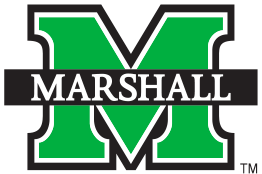Megan Bartram
Oral History Interview
StoryCorps URL: https://archive.storycorps.org/interviews/fys-interview-about-the-topic-of-protests-with-elliott-gollihue-by-megan-bartram/
Student Reflection
a. Process: What did you learn about the technical parts of conducting an oral historyinterview? What aspect did you find most challenging? What aspect was most enjoyable?When learning about an oral history I had no idea what actually went intothem. There is a lot of hard work and research required to do an oral history,you have to know who you are going to talk to and be knowledgeable aboutthe subject you are talking about. To me the most challenging part of this wastrying to come up with good, quality questions to use in my interview. Theaspect that I thought was most enjoyable was the actual interview. I got to goback to high school and interview my favorite teacher and talk to him for awhile and it was fun to go back and see him.
b. Content: What did you learn about the topic that you didn’t already know? I learned that there are many different forms of protests that aren’t always violent. The teacher protests that went on not too long ago were very peaceful and there was no violence. However, in other parts of the world there are protests that aren’t so peaceful.
c. The experience overall: In previous modules, you learned about oral history. You had the chance to gain an understanding of what oral history is and what it is designed to do. You read about interview tips and best practices. And, you had the opportunity to examine closely one audio and/or video oral history and evaluate it. How did actually conducting an oral history interview feel? Share your reactions: Conducting my own oral history was a bit nerve racking, but in the end it is something I’m glad Idid. When I got to the actual interview I was excited because I was interviewing someone who was a great mentor to me in high school and someone who inspired me to choose the type of field I will be going into.When we got to taking during the interview everything seemed to flow nicely and it was something that I’m happy I did.
d. Inquiry Based Thinking: While this reflection assignment in particular emphasizes metacognitive thinking, the Oral History Interview Final project mainly requires InquiryBased Thinking. Based on the definition of Inquiry Based thinking, discuss how you think this assignment meets (or not) this learning outcome.DEFINITION: Inquiry Based Thinking – Students will formulate focused questions and hypotheses, evaluate existing knowledge, collect and analyze data, and draw justifiable conclusions. This assignment meets this learning outcome because it had everyone come up with their own questions that helped lead them to new information. This new information them allowed everyone to create justifiable conclusions about the topic they choose and how they perceived their topic.
e. Suggestions for improvement: What recommendations do you have? If your instructor uses this assignment in future FYS sections, what changes would you recommend? I think the only recommendation I would say is maybe offer a few more topics to choose from. I think having a couple more topics would allow students to find someone that they actual know and can interview them instead of not knowing anything about their chosen topic and not knowing who to interview for it.
f. Finally, talk to a future FYS student about this project: What would you like to tell them about this assignment? What tips and/or advice would you offer a future FYS student ass/he begins examining oral histories and prepares to conduct one? I would tell them that this is an assignment is something that takes good thinking skills and is something that you have to put in the time for in order to make it something that you would want other people to hear and learn about. Some advice I would give is to read and examine the examples of the oral histories closely and use those as a way to gain insight as to how to conduct your own.

